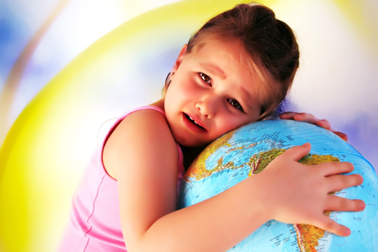
By TreeLiving
Talking with your kids about environmental issues is important in all sorts of ways. You’ll want them to understand how the world works, in all of its facets. It’s great if they can learn to appreciate just how wonderful nature is, as well as how our behavior affects the eco balance of the planet. A third reason, which might not be immediately obvious, is that all the t alk about environmental issues and the threat of climate change can be distressing and scary for kids, who might need your reassurance.
It’s common sense that you’ll need to adapt your eco conversations with your kids, according to their age and awareness levels. If you can talk to your kids about environmental matters while also giving them the chance to experience nature’s beauty and wonder, so much the better. Picnics, rambles and outdoor excursions are perfect contexts for helping them get to grips with green concerns and attitudes. If you’re in a built-up area, there are still plenty of opportunities. The weather, the seasons, pets and household plants are all springboards for talking about ecology and nature.
Pre-school and primary school age kids are wonderfully curious about the world around them. It’s easy to get them engaged with green issues simply by purchasing some easy to grow seeds, like sunflowers or nasturtiums. If conventional pets aren’t an option, insects and goldfish will help generate conversations about nature and green attitudes. Activities using natural materials like leaves and flowers are another way to introduce kids to eco topics.
Teenagers will be more worldly-wise but you can still actively expand their appreciation of environmental concerns. In a high-tech age, nature can seem boring, so make sure they see unspoilt environments as precious places that are also fun. Encouraging outdoor activities such as canoeing, mountain biking or hiking will help foster basic bonds.
Whatever their age, getting children actively involved in green living is the best way to help them understand that they are part of the eco fabric of the planet. With small children it can be as simple as getting them involved in recycling, composting and garden tasks. Older children will be able to appreciate how lifestyles and consumer choices affect the world around us. Your job will be to lead by example, with deeds as well as words.
This can be the reassurance that younger children need. Instead of emphasizing the plight of polar bears and rainforest habitats, help them to see how your and their behavior can conserve nature. Introduce older children to the energy, positivity and community spirit of the environmental movement and activism.
Always give children and young people opportunities to express any anxieties, and be able to give them informed, but not alarmist, answers that help them to feel safe. No matter what age they are, listening carefully and gauging their depth and breadth of knowledge and understanding of eco concerns is the baseline. Giving them the resources to understand and experience nature is a solid foundation for rearing responsible, eco-smart future citizens.

